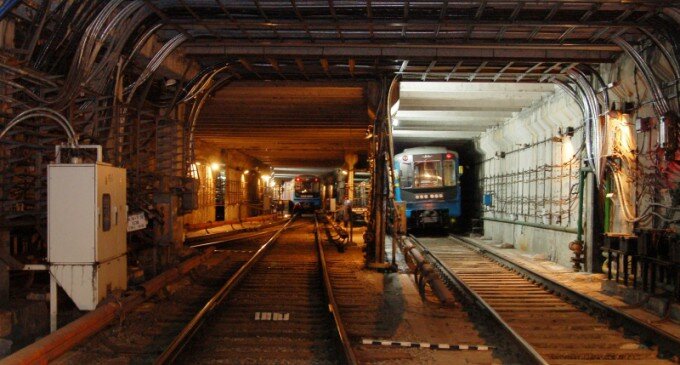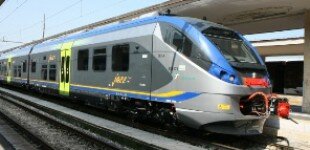Consultant for Kharkiv metro extension and upgrade transportation services feasibility study

The City of Kharkiv, with the support of the Government of Ukraine, has expressed interest in obtaining joint co-financing from the European Bank for Reconstruction and Development and the European Investment Bank to improve urban transport in the city by expanding the current metro system.
The EBRD wishes to retain a consultant to carry out a feasibility study and confirm the proposed project cost of EUR 350 million (net of VAT). The objectives of this assignment are: (1) to detail the route alignment and prepare a ridership demand forecast within tolerable levels acceptable for a FS; (2) to prepare a detailed costing for a high-quality metro extension investment capable of meeting forecast demands in the City; (3) to analyse Project barriers and risks, such as expropriation issues and/or construction peculiarities for the extension works; (4) to prepare a full cost/benefit analysis to inform the decision-making of the Banks concerning further Project preparation; (5) to prepare an environmental and social due diligence; and (6) to prepare pre-qualification and full tender documents.
Kharkiv is the second largest city in Ukraine and accounts for 3.1 per cent (1.5 million) of the national population. It is located in the north-eastern part of Ukraine and is the capital and administrative centre of Kharkiv Oblast. The City has a diversified industrial base, with the largest budget contributors involved in heavy machinery, power and energy, transport, banking and the telecom sectors.
The Kharkiv Metro Company (KMC) is a metro operator, wholly owned by the City, servicing Kharkiv. KMC has been operational since 1975. As of today, KMC carries 0.8 million passengers per weekday or 231.1 million passengers per annum. KMC operates three metro lines with 29 stations and 39 km of lines (two-track). The Company operates 320 wagons (64 trains) and employs 2,300 personnel.
Approximately 519 million passengers per annum are carried by the public transport system in the City. Metro services are the backbone of the public transport system carrying over 40 per cent of all public transport demand. Trams and trolleybuses carry 204 million passengers, while buses and minibuses carry 85 million passengers. The public transportation network was planned with the objective of finding a balance between available budgets for essential mobility needs, and ensuring high capacity service on the core corridors. The system includes 3 metro lines, 13 tram routes, 24 trolleybus routes, and 147 bus and minibus routes. Most of the bus and minibus routes are operated by 13 private operators. There is currently no functional integrated electronic ticketing system in place.
The City coordinates transport service supply through licensing and tariff setting and monitors the provision of services through a Central Dispatching Service. Urban transportation services are the responsibility of the City’s Department for Public Services.
The Metro as well as tram and trolleybus services will remain an essential service for inhabitants with lower income and those eligible for concessionary fares. The Company is expected to retain its market share and its role as the backbone of the transport system, providing frequent and relatively higher capacity services at more affordable prices.
The Kharkiv City Council sets tariffs for public transport services (until last year with approval from the Ministry of Infrastructure, a practice that has now been discontinued). The tariffs were increased by 50 per cent starting from 23 May 2013. A single flat-rate metro ticket costs UAH 3 (EUR 0.21) significantly below prices of either Warsaw (EUR 1.05) or Sofia (EUR 0.51). The privileged/concessionary passenger fares are funded from the State budget (with delays and insufficiently) apart from students and pupils who are co-funded by the municipal budget covering 50 per cent of the full price.
Substantial increases in ridership, assessed by the Company at up to 25 million passengers per annum, which represents a 60 per cent increase over the existing ridership on the Metro Line III, and an associated reduction of private car and bus traffic, are key elements of the economic benefits of the Project. The extension of Metro Line III, which will be achieved with the project implementation, would allow the City and the State to fully capture the anticipated economic benefits of this investment as a result of ridership increase, travel time savings, reduction in the reliance on private car travel and lower emissions. A detailed economic analysis (including carbon emission reduction) will be undertaken during due diligence.
The objective of the Project is to improve the provision of mass transit in Kharkiv as part of an overall strategy to achieve sustainable urban transport in the city. The Project is expected to finance an extension of the metro and upgrade the metro transportation services in the City.
Assignment Duration: The assignment is expected to start in the second quarter of 2015 and last for 7 months.
Cost Estimate for the Assignment: EUR 500,000; exclusive of VAT.
More details http://www.ebrd.com/work-with-us/procurement/pn-46044.html






There are no comments at the moment, do you want to add one?
Write a comment